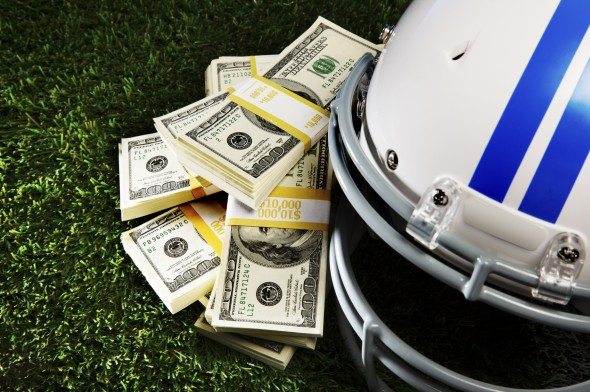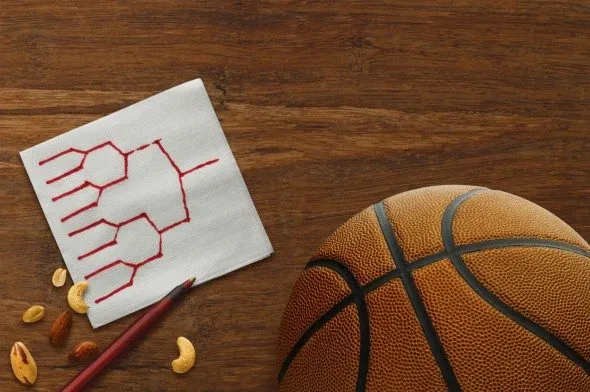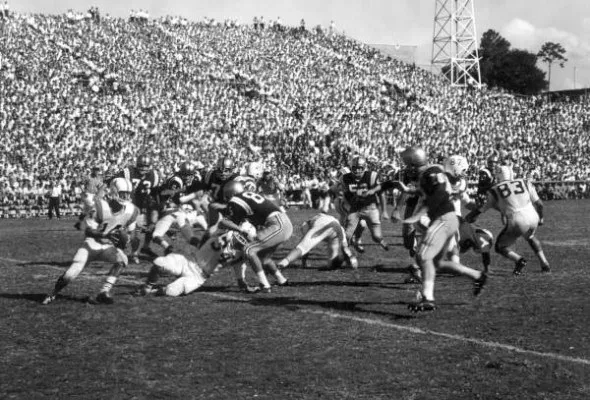For decades, the idea of colleges paying athletes directly was off-limits, but that era is over. By 2026, direct compensation has become a defining feature of college sports, reshaping how athletes earn money and how schools manage their athletic programs. Understanding how these payments work, what limits apply and how they fit alongside name, image and likeness deals is essential for athletes, families and fans navigating this rapidly evolving system.
Consider working with a financial advisor as you make long-range financial plans or modify an existing financial plan to account for new circumstances.
The Debate of Paying College Athletes
The question of whether college athletes should be paid has been debated for decades, dividing fans, schools and policymakers alike. Supporters of compensation argue that athletes generate billions of dollars in revenue for universities, athletic conferences and the NCAA, yet receive no direct share of that money. Critics, on the other hand, claim that scholarships and educational opportunities already provide significant value, and that paying players could undermine the amateur spirit of college sports.
At the heart of the debate is the financial reality of modern college sports. Football and men’s basketball, in particular, are massive business enterprises, driving lucrative TV deals, ticket sales and merchandise revenue. Many believe it’s unfair that coaches earn multimillion-dollar salaries while the athletes responsible for filling stadiums are limited to scholarships. This financial imbalance has fueled public pressure for reform, leading to landmark changes like the legalization of name, image and likeness (NIL) payments.
While the idea of paying college athletes has gained traction, it also raises complex questions about fairness across different sports. Should all athletes be paid equally, or only those whose sports generate significant revenue? Title IX regulations add another layer of complexity, requiring schools to maintain gender equity in their athletic programs. Balancing the economic realities of big-time college sports with the principle of equal opportunity remains one of the biggest challenges in implementing any pay-for-play model.
How College Athletes Started to Get Paid

For decades, the NCAA’s rules prohibited college athletes from earning any money tied to their athletic identity. Even accepting free meals or small gifts could risk eligibility. However, mounting legal challenges, public criticism and the rise of social media created pressure for change. The watershed moment came in 2021, when the Supreme Court’s decision in NCAA v. Alston paved the way for athletes to profit from their name, image and likeness, known as NIL rights.
Soon after that ruling, the NCAA formally lifted restrictions on NIL payments, marking a new era for college sports. Athletes could now sign endorsement deals, promote brands online, sell autographs or even start their own businesses. This shift gave players more control over their financial futures and recognized their growing influence in a multibillion-dollar industry. For many, it was the first time their market value as athletes could be legally acknowledged.
Because the NCAA’s decision came after years of state-level momentum, NIL rules still vary across the country. Some states passed detailed legislation outlining how athletes can be compensated, while others left it to universities to set their own policies. Many schools have since developed programs to help athletes understand contracts, manage their earnings and stay compliant with both state and NCAA guidelines. This patchwork system continues to evolve as lawmakers and institutions adapt to the new financial reality.
How the NIL Payments Work
NIL stands for “name, image and likeness,” a term that describes a college athlete’s right to earn money from their personal brand. Before 2021, as mentioned above, NCAA rules prohibited athletes from profiting in any way tied to their athletic identity, even through activities like signing autographs or appearing in ads. Today, those restrictions have been lifted, allowing college players to sign endorsement deals, promote products on social media or run their own businesses while maintaining their amateur status.
NIL income can come from a variety of sources, including brand sponsorships, social media partnerships and personal appearances. For star athletes, these deals can reach six or even seven figures, especially when playing for high-profile programs. However, NIL opportunities aren’t limited to top-tier talent, athletes at smaller schools are also cashing in through local business promotions or fan-supported initiatives that reward community engagement.
A major player in the NIL landscape is the “collective,” an organization often funded by boosters and alumni that pools money to facilitate deals for athletes. While collectives are not officially affiliated with universities, they frequently operate in close coordination with athletic departments. These groups help athletes navigate contracts, ensure compliance with state and NCAA rules and sometimes even provide financial education to manage their earnings responsibly.
Although NIL deals are fully legal, they come with financial responsibilities that many young athletes are encountering for the first time. Payments are typically considered self-employment income, meaning athletes are responsible for their own taxes. In some cases, they may need to set aside a portion of their earnings for quarterly tax payments. Understanding these obligations early, ideally with the guidance of a financial advisor, can help athletes avoid costly mistakes and make the most of their new income.
How NIL Payments Are Changing College Sports

The introduction of NIL rights has dramatically altered the landscape of college athletics. For decades, schools and the NCAA tightly controlled how athletes could benefit from their talents, but NIL laws have shifted that power toward the players. Now, student-athletes can capitalize on their marketability while still pursuing a degree, transforming what it means to be an amateur competitor. This newfound autonomy has given athletes both financial freedom and a stronger voice in shaping their college experience.
NIL deals have quickly become a major factor in recruiting. Top programs are leveraging their brand strength and alumni-funded collectives to attract elite talent, sometimes offering lucrative endorsement opportunities before an athlete ever steps on campus. While this can give wealthier schools an edge, it’s also pushing smaller programs to innovate and highlight their unique advantages, such as community support or strong academic programs, to remain competitive. The recruiting game is no longer just about facilities or coaching; it’s also about financial potential.
For many athletes, NIL has turned college sports into an early introduction to entrepreneurship. Managing contracts, marketing partnerships and personal brands has become part of their day-to-day lives. This shift is prompting universities to expand support systems, offering education in business, finance and media relations. It’s an opportunity for athletes to build real-world skills that will benefit them long after their playing days are over, whether or not they turn professional.
As NIL deals grow more complex, so do the legal and financial challenges that come with them. Universities, collectives and athletes are increasingly turning to financial advisors, accountants and attorneys to navigate contracts, taxes and compliance rules. For players, having professional guidance can mean the difference between short-term gain and long-term financial security. The rise of NIL has effectively made financial literacy an essential part of modern college sports.
How Payments Work Directly From Colleges
In 2026, many colleges can pay athletes directly, marking a major departure from the long-standing amateurism model. This change allows schools to compensate athletes for their participation, often through standardized payments tied to roster status or sport-specific agreements. While the exact structure varies by institution, direct pay is now a formal part of the college sports landscape rather than an exception.
Colleges face limits ($20.5 million per year across all sports) on how much they can pay athletes, largely driven by conference rules, institutional budgets and revenue-sharing frameworks. Many schools cap total athlete compensation pools to avoid competitive imbalance and to stay aligned with guidance from organizations such as the NCAA. These caps often vary by sport, with revenue-generating programs like football and basketball typically allowing higher payments than non-revenue sports.
Most colleges that offer direct compensation do so through contractual agreements that outline payment amounts, timing and performance expectations. These payments are typically funded by athletic department revenues, such as media rights and ticket sales, and may differ widely between schools and conferences. Oversight and compliance still matter, with frameworks influenced by guidance from organizations like NCAA and conference-level rules.
Bottom Line
The movement to pay college athletes has reshaped the world of collegiate sports, turning what was once a rigid amateur system into a dynamic marketplace for talent and opportunity. With NIL rights, athletes can now profit from their hard work and personal brands, leveling a field that long tilted toward institutions and sponsors. But with new income also comes new responsibility, from understanding contracts and taxes to managing long-term financial goals. For many athletes, this is more than a paycheck; it’s the foundation for financial independence.
Tips for Managing Your Finances
- Whether you’re a star athlete or just a fan, it’s a good idea to have a solid financial plan in place. That’s where a financial advisor comes in. Finding a financial advisor doesn’t have to be hard. SmartAsset’s free tool matches you with vetted financial advisors who serve your area, and you can have a free introductory call with your advisor matches to decide which one you feel is right for you. If you’re ready to find an advisor who can help you achieve your financial goals, get started now.
- A core tenet of personal finance is making sure you’re prepared for an uncertain future. A great way to do this is by storing an emergency fund in a high-yield savings account. Having three to six months of expenses stashed away for emergencies can give you immense peace of mind.
Photo Credit: flickr; ©iStock.com/DustyPixel; ©iStock.com/skodonnell
